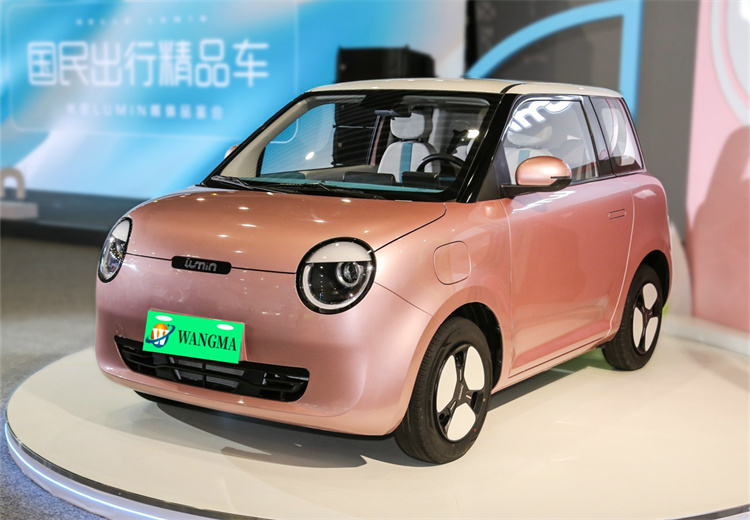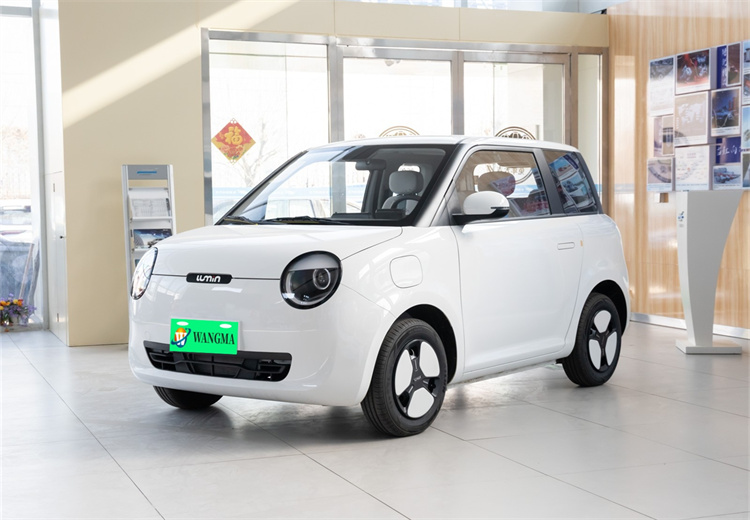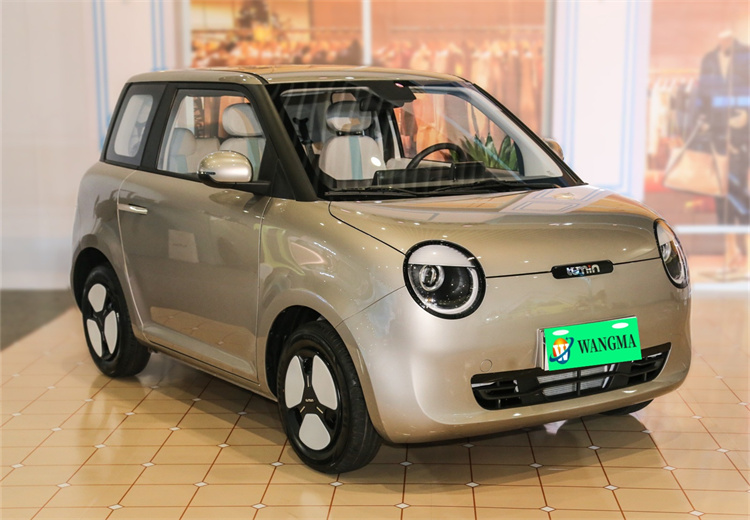
Jul . 20, 2025 21:33 Back to list
Affordable Mini EV Cars | Eco-Friendly Electric Vehicles for City Life
The automotive landscape is undergoing a dramatic transformation with ev car technology at the forefront. New energy vehicles represent the future of sustainable transportation, combining advanced engineering with eco-friendly innovation. As we navigate toward a low-carbon future, compact and efficient mini ev solutions are gaining significant traction in urban environments.
According to the International Energy Agency (IEA), global ev car sales surpassed 10 million units in 2022, representing 14% of all new cars sold. This growth trajectory is expected to accelerate with projections indicating 35% market penetration by 2030. The rapid innovation in battery technology, charging infrastructure, and government policies supporting new energy vehicles are driving this transformation.
Hebei Xianda Technology Co., Ltd: Driving Innovation
At the forefront of this revolution is Hebei Xianda Technology Co., Ltd, a leading innovator in the ev car sector. With over a decade of experience in sustainable transportation solutions, Xianda Technology combines cutting-edge engineering with environmentally responsible manufacturing processes.
15100119315
admin@hbwangma.com
Room 1017, Qicheng Building, No.210, ZhongHuanan Street, Qiaoxi District, Shijiazhuang City, Hebei Province
www.xdtinplate.com
Cutting-Edge EV Car Solutions
Modern ev car technology focuses on three critical areas: battery efficiency, charging infrastructure, and performance optimization. Lithium-ion batteries continue to dominate, with energy densities improving by approximately 7% annually. Simultaneously, solid-state battery technology promises to revolutionize the industry with higher energy density and improved safety.
The development of ultra-fast charging networks is critical to mainstream adoption. New generation charging stations can now deliver up to 350 kW, enabling a 300km range boost in less than 20 minutes. For compact mini ev solutions, efficiency in urban environments is the primary focus, with regenerative braking systems recapturing up to 30% of kinetic energy during deceleration.
MINI EV Auto Electrico Changan Lumins Corn: Redefining Urban Mobility
The MINI EV Auto Electrico Changan Lumins Corn represents the perfect synergy of functionality, efficiency, and design for urban environments. Manufactured in Hebei, China with customizable color options, this mini ev is engineered for the modern city dweller.



This mini ev features advanced thermal management systems for optimal battery performance in all climates. The compact size makes it perfect for navigating tight urban spaces while providing surprising interior volume. As cities implement stricter emissions regulations, the MINI EV Auto Electrico Changan Lumins Corn offers a sustainable solution without compromising practicality.
Explore Full SpecificationsEV Car Technology Trends & Data
EV Market Growth and Technology Trends
Comparative Analysis of Leading Electric Vehicles
| Model | Range (km) | Charging Time (0-80%) | Battery Capacity | Max Speed | Price Range |
|---|---|---|---|---|---|
| MINI EV Auto Electrico Changan Lumins | 210-400 | 40 min (DC fast) | 20-40 kWh | 101 km/h | $10,000-15,000 |
| Tesla Model 3 | 438 | 25 min | 60 kWh | 225 km/h | $40,000-55,000 |
| BYD Dolphin | 340 | 45 min | 44.9 kWh | 150 km/h | $25,000-30,000 |
| Wuling HongGuang Mini EV | 170 | 65 min | 13.8 kWh | 100 km/h | $4,500-6,000 |
| Volkswagen ID.4 | 400 | 38 min | 77 kWh | 180 km/h | $40,000-50,000 |
Applications & Future of EV Car Technology
The versatility of new energy vehicles extends beyond personal transportation. Urban delivery services are increasingly adopting mini ev fleets for last-mile logistics, reducing emissions and operational costs by up to 40% compared to conventional vehicles. Car-sharing programs in metropolitan areas benefit from compact dimensions and lower operating expenses.
Future advancements in ev car technology include:
- Vehicle-to-Grid (V2G) systems transforming cars into mobile energy storage units
- Enhanced autonomous driving capabilities optimized for electric platforms
- Sustainable battery recycling ecosystems approaching 95% material recovery rates
- Integration with smart city infrastructure for optimized routing and energy management
EV Car Technical FAQ
What battery technology powers modern ev car solutions?
Most contemporary new energy vehicles utilize Lithium Iron Phosphate (LFP) or Nickel Manganese Cobalt (NMC) battery chemistries. LFP batteries offer superior thermal stability and longer cycle life, making them ideal for mini ev applications where safety and longevity are priorities.
How do thermal management systems work in electric vehicles?
Advanced ev car thermal systems utilize liquid cooling circuits and heat pumps to maintain optimal battery temperature between 20-40°C. This extends battery life by up to 60% and enables rapid charging regardless of ambient temperatures.
What charging standards do mini ev models support?
Most new energy vehicles conform to CCS Type 2 (DC) and Type 2 (AC) standards. The MINI EV Auto Electrico supports both standards with charging rates up to 80kW, enabling a 210km range charge in approximately 35 minutes.
What safety certifications do premium ev car batteries require?
Battery systems must comply with UN38.3 transportation safety standards and pass stringent tests including thermal runaway propagation tests per GB/T 31467.3 standards. Premium mini ev manufacturers additionally implement multiple redundant protection systems.
How does regenerative braking extend ev car range?
Regenerative systems capture kinetic energy during deceleration, converting it back to electricity with up to 70% efficiency. In urban driving cycles, this technology can extend the range of new energy vehicles by 15-30%, especially in stop-and-go traffic.
What cybersecurity measures protect modern electric vehicles?
Ev car manufacturers implement multi-layer security including secure boot protocols, CAN bus encryption, and over-the-air update authentication compliant with ISO/SAE 21434 standard. Physical security standards adhere to CNCA-C11-01:2014 requirements.
What is the expected lifecycle of mini ev batteries?
Modern new energy vehicles battery packs are engineered for 2000+ full charge cycles while maintaining 80% capacity. With average annual driving distances, this translates to approximately 8-12 years before significant capacity degradation occurs.
Industry Research & References
-
"Global EV Outlook 2023" - International Energy Agency
Comprehensive analysis of electric vehicle markets worldwide, including policy developments, charging infrastructure deployment, and technology trends.
https://www.iea.org/reports/global-ev-outlook-2023 -
"Battery Technology for Electric Vehicles: Materials Perspective" - Journal of Power Sources
Peer-reviewed research on next-generation battery technologies and their implications for ev car performance and sustainability.
https://www.sciencedirect.com/science/article/abs/pii/S0378775312017345 -
"Urban Mobility Transformation: The Rise of Mini EVs" - Sustainable Cities International
Case studies on how compact mini ev solutions are addressing urban transportation challenges in metropolitan areas worldwide.
https://sustainablecitiesresearch.org/urban-mobility-transformation -
"Charging Infrastructure Deployment Best Practices" - Electric Vehicle Research Center
Technical guidelines for optimizing charging networks to support widespread adoption of new energy vehicles.
https://evrc.org/charging-infrastructure-guide
-
New Energy Vehicles: High Endurance & Cost-Performance
NewsAug.27,2025
-
New Electric Vehicles: Explore BYD Cars & Future Energy
NewsAug.26,2025
-
Buy Diamond Plate Tin Factory Direct | Quality & Durable Metal
NewsAug.25,2025
-
BYD Electric Cars: Innovation & Performance EVs
NewsAug.24,2025
-
High Cost Performance: Stylish, High Endurance Devices
NewsAug.23,2025
-
Cheap Car & EV Deals: Used, New Energy & Luxury Electric Vehicles
NewsAug.22,2025